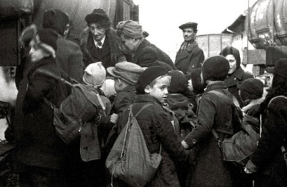RISE OF ARE VOLUTIONAR Gandhi

2019 marked the 150th birth anniversary of Mohandas Karamchand Gandhi (1869-1948), one of the most iconic and important figures of the 20th century and someone seen as the father of modern India. The great US Civil Rights leader Martin Luther King travelled to India in 1959 to pay homage, commenting admiringly that “Gandhi was able to mobilise and galvanise more people in his lifetime than any other person in the history of the world.” This is a bold statement indeed, but arguably not an inaccurate one, especially given the transnational dimensions of Gandhi’s strategy of Civil Disobedience, which was initially tested in South Africa, where Gandhi lived for over 20 years, leading the struggles of Indians (particularly in Natal and the Orange Free State) for civil and political rights.
On his return to India, hundreds of thousands committed themselves to mass civil disobedience in the struggle for independence under Gandhi’s leadership. Following his noncooperation campaign of 1920-22, over 60,000 people were thrown into jail in 1930 for non-payment of the colonial salt tax. In 1942, over 100,000 Indians were detained and imprisoned over the Quit India agitation, another movement Gandhi initiated. Gandhi himself was imprisoned four separate times in South Africa, and a further five times in India, meaning that it has been estimated he spent a total of 2,338 days in jail across the course of his life. Yet each wave of his campaigning ignited mass mobilisations and sapped the will of the British to hold onto their ‘jewel in the crown’.
Gandhi’s political philosophy was termed satyagraha: satya meaning truth and graha referring to insistence or force. Truth-force translates as non-violent resistance. It is not passive resistance, but the active engagement to resist unjust laws, using non-violence. For Gandhi it was not “meek submission to the will of the evildoer, but it means the putting of one’s soul against the will of the tyrant.” The politics of non-violence represented moral force against an unjust order that entailed a refusal to cooperate with authorities and a willingness to undergo conscious suffering to attain objectives.
“AN EYE FOR EYE ONLY ENDS UP MAKING THE WHOLE WORLD BLIND”
The power of moral persuasion combined with non-violent
You’re reading a preview, subscribe to read more.
Start your free 30 days





